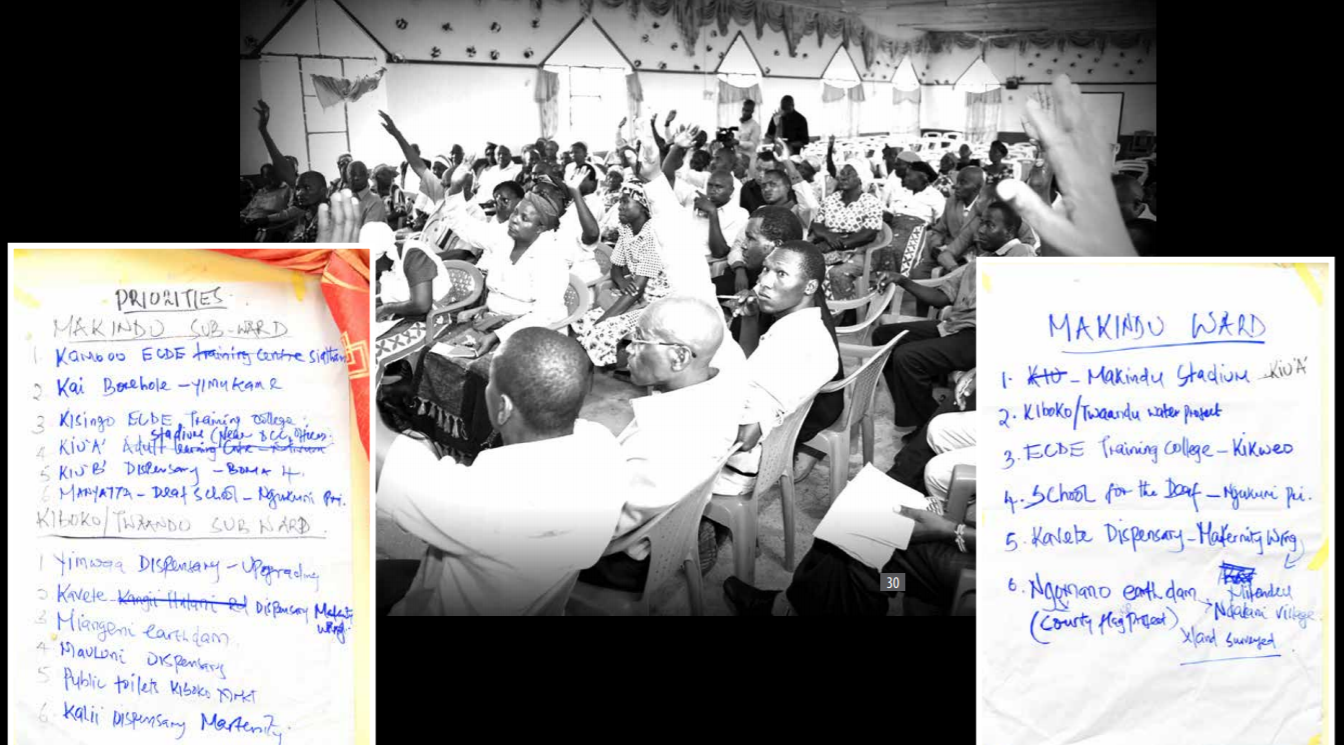Kenya
01-01-2010
Kenya inciated devolution with the new Constitution of 2010 and created 47 county governments, five of them set up participatory budgeting in order to be more inclusive and enhance citizen participation.
With devolution, the aim is to provide more proximity policies and include the youth in citizen participation process.
Following the adoption of a new Constitution in 2010, Kenya initiated a decentralized governance with the creation of 47 county governments, and fiscal transfers from Nairobi. With devolution, the aim is to provide more proximity policies. Indeed, in Kenya, although three-quarters of the population are aged 18-35, politic is mainly older people's decision.
As devolution entails the transfer of power and resources to an entire new level of government, counties face unique challenges that demand innovative solutions. And one of Kenya's challenge is to be in harmony with its youth's needs and wills. Kenya is aware that, by being so often excluded from political decisions, the youth needs tools but also proofs they will be taking into account. Indeed, based on their past experience, youth often mistrust the government.
In April 2017, the World Bank has decided to join five counties governments, Makueni, West Pokot, Baringo, Kwale and Elgeyo Marakwet, to help them set up participatory budgeting to improve public services and infrastructures. Participatory Budgeting is being tested in these counties as a way to achieve more inclusive and effective citizen engagement processes. The World Bank's Kenya Accountable Devolution Program (KADP) has facilitated different workshops with a representative panel of 50 person. They work through a two-day training for participants, discussions and conclusions. Indeed, civic education is a big part of the process so citizens can understand the basic roles, responsibilities and functions of the counties.

These consultations led to actions recommended by the young participants, they mainly focused on how the governments and counties could implement and inform about popular participation and participatory budgeting at both local and national levels.

We found the participatory budgeting's experiences in these five counties are a way to promote and encourage young people interest in political decisions. Such inclusive initiatives also permit to implement a more community-centred approach for political decisions.
More information:
https://www.worldbank.org/en/country/kenya/brief/kenyas-devolution